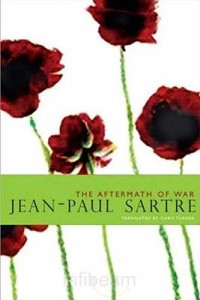-

Keynes and the crisis
After neoliberalism dispatched Keynesianism in the 1970s, the left was relieved of the need to confront Keynes. But as neoliberalism self-destructs in capitalism’s greatest crisis since the Great Depression, neoliberals and “third way” economists conjure up Keynesianism anew in their attempts to salvage it.
-

Canada stoops before Honduran Coup
Canada’s minister for the Americas is reported to have said things at the OAS special meeting of July 4 that, whatever its participants understood, do mislead Canadian quick readers of newspapers. Readers are left with a strong impression not just that Canada supports the military’s ouster of the Honduran president, but that Canada should support the putsch, as should everyone.
-
Obama’s Rollback Strategy
The recent events in Honduras and Iran, which pit democratically elected regimes against pro-US military and civilian actors intent on overthrowing them can best be understood as part of a larger White House strategy designed to rollback the gains achieved by opposition government and movements during the Bush years.
-
Canada alone in opposing the return of Zelaya in Honduras; here’s why
Hostility to the military coup in Honduras is increasing. So is the Harper government’s isolation on the issue.
-

Peeping in on Goldie (and liking the show)
In queersexlife: Autobiographical Notes on Sexuality, Gender & Identity Terry Goldie offers up a heady brew of theory and introspection that is both refreshing and biting. The “autobiographical notes” that infuse the book reveal the intimacy and inextricability of personal experience and theoretical perspective which grounds the work and makes it feel “human” and accessible. At the same time, the deeply personal details jar the reader who might find his frankness unfamiliar, if not uncomfortable. And good for him. Goldie’s narratives are not merely casual observations that superficially draw links between the personal and political; instead, he is willing to be vulnerable and raw. Academic writing rarely offers this intimacy—moans and other physical pleasures in the first person—and it is a welcome shake-up. Indeed, it causes the reader, at least this reader, to question what that initial discomfort may mean, about the boundaries of knowledge production and about the scopophilia that positions the reader in a unique relationship to the text, gazing upon the strokes and sounds that emit from the pages.
-

Canadian Idle?
Inflation is spiraling out of control in Canada. A huge ego-bubble has developed on Sussex Drive and Bay Street, where chests have been expanding dangerously with every new media report extolling Canada’s success in weathering the global economic storm.
-

Fist of the Spider Woman
When I decided to venture “out,” I yearned for lesbian literatures that would brace my trembling, newborn limbs. I’d spent years projecting my own lesbian desires in my mind’s wide dark room while at the hands of male lovers, but at the brink of queerdom, I struggled to connect sex and emotions. For guidance, I bought the annual Ultimate Lesbian Erotica, which wasn’t ultimate, I was so disengaged from the contrived characters and situations I never finished reading the collection. Instead, I wish I’d picked-up a literary collection like Fist of the Spider Woman: Tales of Fear and Queer Desire, an anthology edited by Vancouver’s Amber Dawn, however, I doubt there were many like it. This anthology’s diverse cast of characters skillfully embodies the political and personal that molds a lesbian’s desire, constructing stories and poems that are sexy and substantive.
-

Critique of Intelligent Design
Roughly coinciding with the 150th anniversary of the publication of Charles Darwin’s Origin of Species, this timely, interesting, and important book is a firm rejection of the attempts by the contemporary intelligent design (ID) movement to force a religious worldview into the domains of natural and social science. In their examination of the struggle between science and religion, the book’s authors come down forcefully on the side of science, and at the same time shed light on two critical aspects of this debate that have been hitherto largely neglected. First, the writings properly connect the current debate between materialism and creationism to its millennia-long history and thereby provide a valuable historical perspective. Second, they crucially expose the true objectives of the intelligent design movement, goals that entail not only redefining the natural sciences, but also the social sciences as well.
-

The Aftermath of War
In the summer of 1974, in a hotel room in Rome, Simone de Beauvoir tape-recorded a series of conversations with her lifelong companion, Jean-Paul Sartre. He was already almost blind and beginning to suffer the illnesses that would take his life six years later. De Beauvoir asked Sartre what works of his he thought had the greatest chance of surviving. Sartre replied, “I think it’s Situations, articles related to my philosophy but written in a very simple style and speaking of things that everybody knows.”
-

British Columbia’s Meaningless Climate Debate
Judging by the response of mainstream environmentalists, British Columbia’s recent provincial election was a referendum on how to fight climate change. The Liberal incumbents proposed no change to the carbon tax they introduced last year. The opposition New Democratic Party wanted to replace the tax with “a ‘cap and trade’ plan — just like U.S. President Obama.”
Prominent green NGOs, including the David Suzuki Foundation, the Pembina Institute, and ForestEthics, blasted the NDP for taking a “backward step.” A Pembina representative wrote: “The carbon tax is already showing results. It is important for British Columbia to keep moving forward on climate change rather than starting over again.” The Liberals won the election, so BC’s green future is assured. Right? Wrong.



